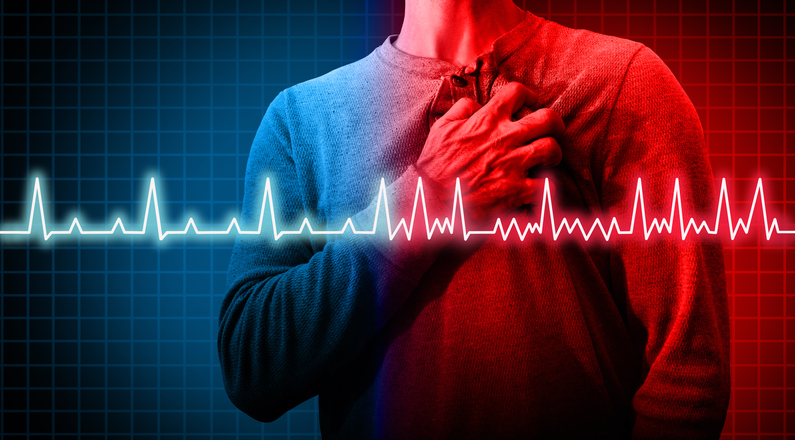
A new study indicates that mental stress may have physical effects that affect the heart, and heart failure in particular, according to new research.
“Under controlled conditions, mental stress can provoke decrements in ventricular function, yet little is known about the effect of mental stress on diastolic function in patients with heart failure,” the study authors wrote in their rationale.
Researchers for the paper enrolled 24 heart failure patients with ischemic cardiomyopathy and reduced ejection fraction (HFrEF) who completed daily assessments of perceived anger, stress, and other negative emotions for a period of seven days. Patients then underwent a laboratory mental stress protocol. The researchers then conducted 2D Doppler electrocardiography testing on patients at rest and during sequential anger arithmetic tasks. The 2D test was performed to assess indices of diastolic function (E, e’, and E/e’).
According to the study results, 14 patients (63.6%) experienced stress-induced increases in E/e’. Changes in baseline to stress were driven by decreases in left ventricular relaxation (e’). The authors also reported that age-adjusted linear regression revealed a link between seven-day anger and baseline E/e’, and that patients who reported greater anger in the prior week to mental stress showed higher resting left ventricular pressure.
“Mental stress is common in patients with heart failure due in part to the complexities of disease self-management, progressively worsening functional limitations, and frequent symptom exacerbations and hospitalizations,” lead author Kristie Harris, a postdoctoral associate in cardiovascular medicine at Yale University, said in a news release. “We have evidence that patients who experience chronically elevated levels of stress experience a more burdensome disease course with diminished quality of life and increased risk for adverse events. Clarifying the relevant behavioral and physiological pathways is especially important in the era of COVID-19 when the typical stressors of heart failure may be further compounded by pandemic-related stressors.”
The study was published in the Journal of Cardiac Failure.
https://twitter.com/jonaoki/status/1293901030674042881?s=20







 © 2025 Mashup Media, LLC, a Formedics Property. All Rights Reserved.
© 2025 Mashup Media, LLC, a Formedics Property. All Rights Reserved.